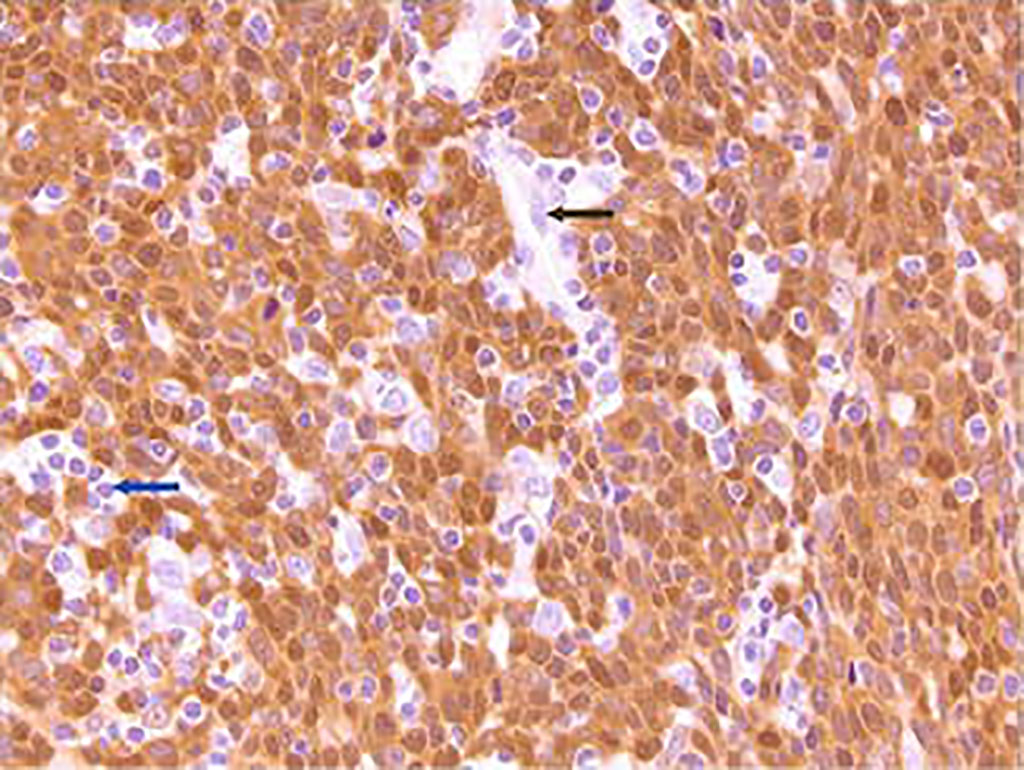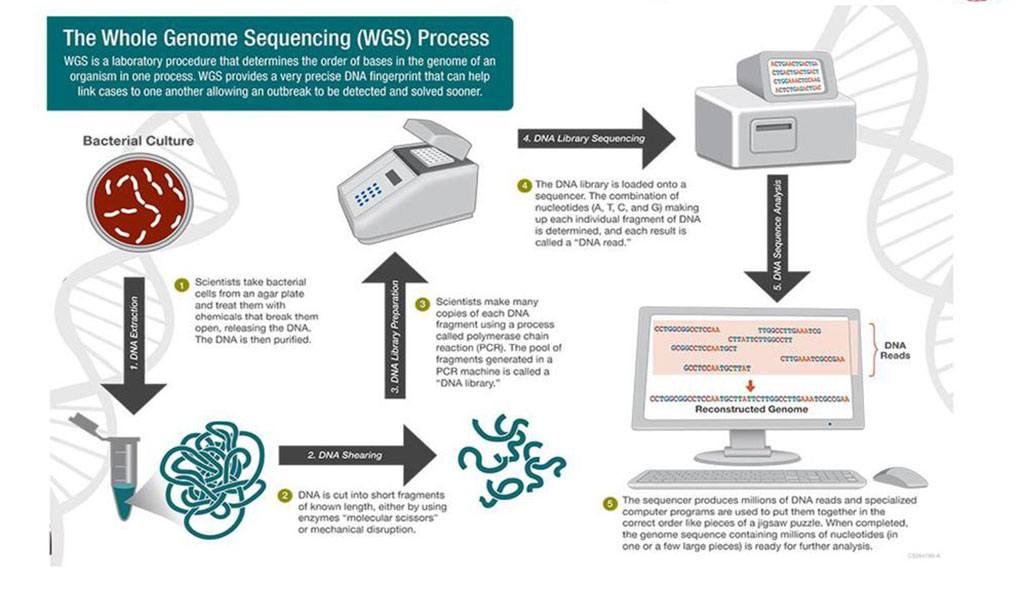Molecular Diagnostics

Biomérieux Launches Free Mobile App to Aid Clinicians in Emergency and Critical Care Diagnostics
A free mobile application aims to support clinicians in decision-making and monitoring of patients using emergency and critical care diagnostics. In hospitals, particularly for emergency cases, diagnostic options can be limited for patients with acute and complex pathologies. More...04 Mar 2022

Mitochondrial Damage May Explain the Increased Incidence of Hypertension in Black Adults
Increased plasma concentration of the enzyme xanthine oxidase (XO) and the resulting mitochondrial DNA damage that it can cause may explain why Blacks have a significantly higher incidence of hypertension than their White counterparts. More...03 Mar 2022

TTMV-HPV DNA Biomarker Predicts Recurrence of Oropharynx Cancer
A large, multi-institutional study demonstrates that a blood test to detect circulating tumor DNA can accurately predict recurrence of HPV-driven oropharyngeal cancer following treatment. Results also indicate that the biomarker test may detect recurrent disease earlier than imaging or other standard methods of post-treatment surveillance, allowing physicians to personalize treatment more quickly for patients whose cancer returns. More...03 Mar 2022

Two Important Cardiovascular Disease Risk Factors Operate Independently
Determination of blood levels of the cholesterol-rich biomarker lipoprotein(a) [Lp(a)] and the coronary artery calcium (CAC) score are independently associated with risk of developing coronary artery disease and may be useful concurrently for guiding therapy approaches to prevent its occurrence . More...02 Mar 2022

Sensitive Diagnostic Test for Alzheimer’s Disease Demonstrates Accuracy Over Multiple Laboratories and Protocols
The diagnostic accuracy of a blood test that assesses whether amyloid plaques have begun accumulating in the brain based on the ratio of the levels of the amyloid beta proteins ABeta42 and ABeta40 was confirmed in a recent study. More...01 Mar 2022


Whole-Genome Sequencing Diagnoses Neurological Repeat Expansion Disorders
Scientists have found whole genome sequencing (WGS) can quickly and accurately detect the most common inherited neurological disorders – something previously thought to be impossible – with the results supporting the use of WGS as a standard diagnostic tool within routine clinical practice. More...25 Feb 2022
In Other News
High-Risk Subtype of Relapsed Pediatric Acute Myeloid Leukemia Revealed
C-reactive Protein Level Can Replace Erythrocyte Sedimentation Rate for Defining the Severity of Ulcerative Colitis
Genome Sequencing Investigated for Prenatal Diagnosis of Fetal Structural Anomalies
Genetic Signature Predicts Patients’ Response to Gastric Cancer Therapy
LumiraDx C-Reactive Protein (CRP) Test Achieves CE Marking
New Method for Three-Dimensional Analysis of Cancer Cells Shows Diagnostic Potential
Titin-Truncating Variant Associated With Late-Onset Dilated Cardiomyopathy
New Pathogen Detection Assay Pairs Molecular Inversion Probes, Next-Generation Sequencing
Metabolomics-Based Test Detects Early-Stage Lung Cancer and Predicts Patient Survival Time
Sensitive Protein Assay Differentiates Parkinson’s Disease from Other Synucleinopathies
World's First Genomic Test for Personalized HER2+ Breast Cancer Treatment Could Revolutionize Precision Oncology
dd-cfDNA Test for Assessing Kidney Transplant Rejection Performs Strongly in Real-World Study
CRISPR-based Assay Platform Detects Multiple Viruses and COVID-19 Variants
New In-Vitro Diagnostic Kits Help Patients Fight Cancer in Europe
Personalized Molecular Monitoring Assay Uses Algorithms for Early Detection of ctDNA
Molecular Profiling of Meningioma Leads to Improved Prognosis and Therapy
Aptamer-Based Test Identifies Biomarkers Linked to Neuropsychiatric Symptoms of Systemic Lupus Erythematosus
Rapid, Cheaper Test Identifies Specific Genetic Mutations in Patient’s Cancer Cells for Personalized Therapy
Certain Childhood ALL Subtypes Linked to Genetic Ancestry
Intestinal Microbiota Determines the Risk of MDRO Acquisition
Blood Biomarkers May Distinguish Dementia Disorders
Biomarker Panel Predicts Depressive Symptoms in Pregnant and Postprartum Women
Novel Urinary miRNA Biomarker for Early Detection of Colorectal Cancer
Genetic Testing channel of LabMedica brings the latest in molecular genetics, cytogenetics, and epigenetics, and methods from PCR to FISH, and more.










